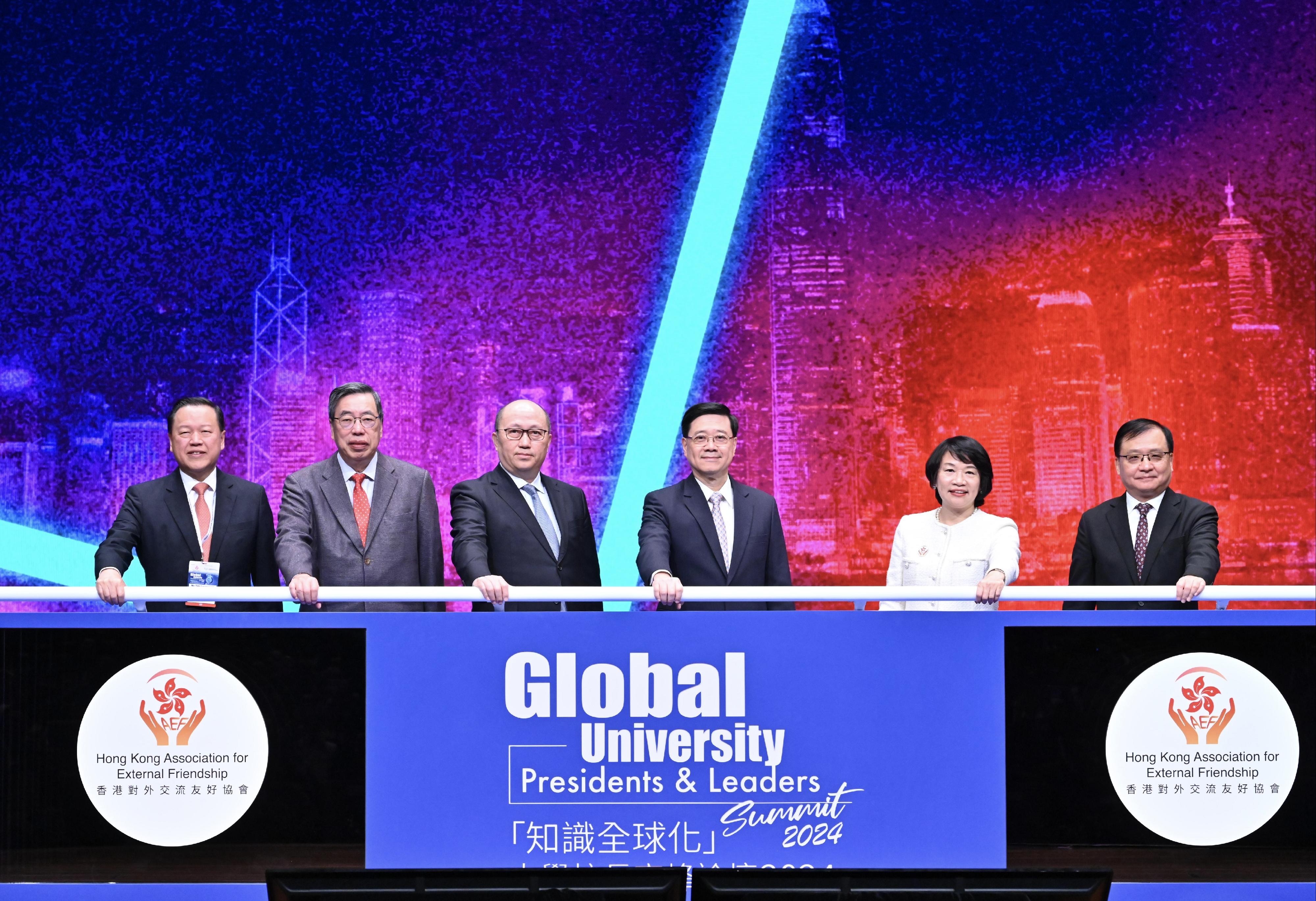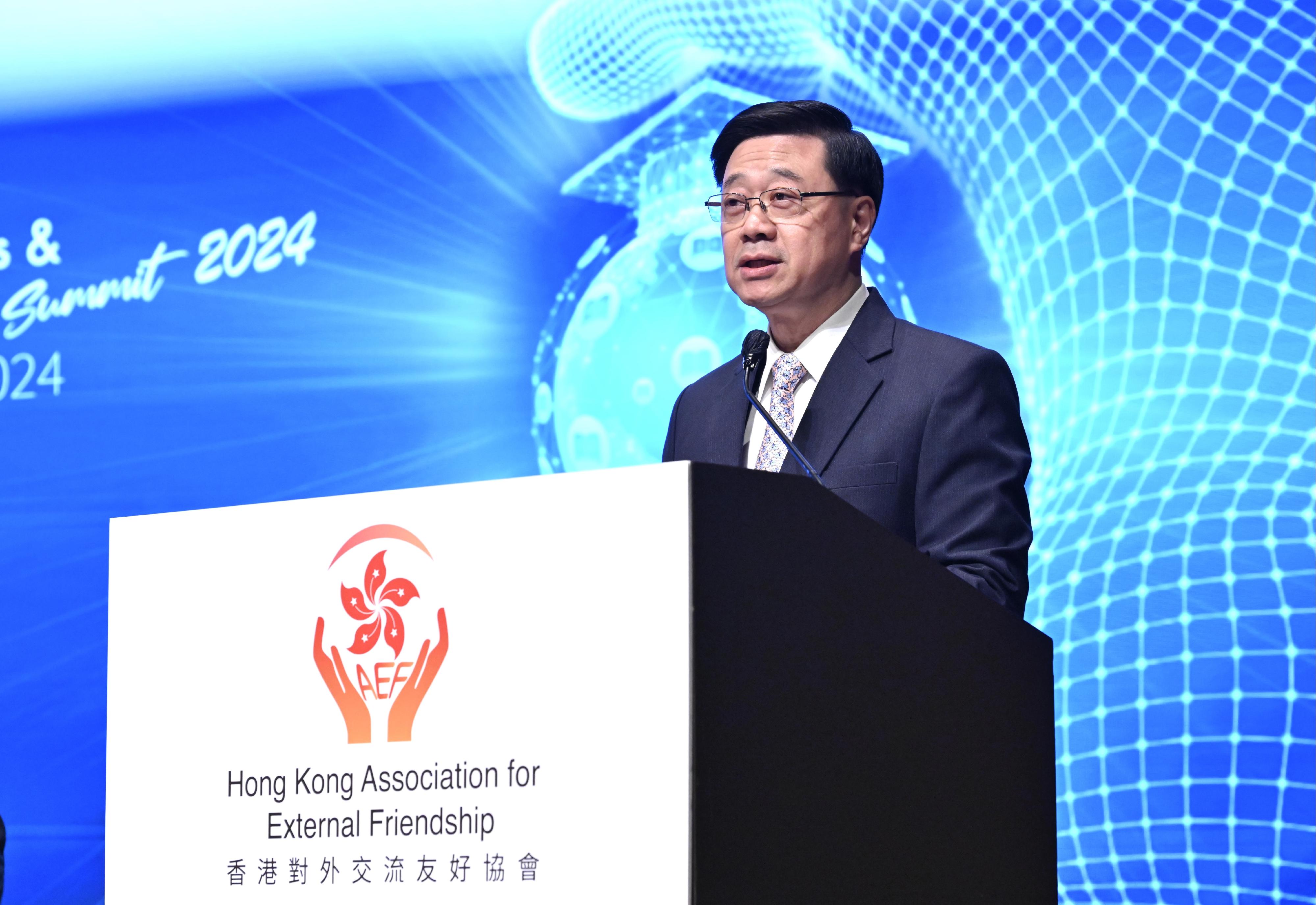
University governors, education pundits and academics on Monday urged their peers to step up multilateral collaboration efforts, amid an enveloping technological revolution, at a newly launched high-profile education summit that’s set to become another high point in Hong Kong’s bid to be an international hub for post-secondary education.
The two-day Global University Presidents and Leaders Summit 2024, themed “Globalization of Knowledge,” features nine sideline panel discussions, where a cohort of A-list academics, led by presidents of 50 world-class universities from some 20 countries and regions, will discuss leading-edge research trends converging on the cusp of technology advancement and university governance innovation.
The discussions cover knowledge globalization, data science, law and ethics, youth psychology, biomedical sciences, demographic changes, and applied science, with much gravity on how academic institutions worldwide can create synergy to best adapt to and leverage the fast-paced development of artificial intelligence technology.
Priscilla Leung Mei-fun, founding president of the Hong Kong Association for External Friendship, the event's organizer, said AI technology is a humanity creative innovation, and its governance -- how to reap its benefits and prevent its abuses -- is a pressing issue that university leaders need to be aware of.
ALSO READ: 'As global education hub, HK will offer countless opportunities'
For such collaborative deliberation necessitating global connectivity and contributions of leading intellectual minds, she said the special administrative region is applauded for providing solid platforms.
Addressing the opening ceremony, Chief Executive John Lee Ka-chiu explained how “unique advantages springing from the ‘one country, two systems’” empower Hong Kong’s higher education sectors to develop extensive global connectivity.

Students from more than 100 countries are currently enrolled at Hong Kong universities, with more than half of the academic staff coming from overseas, he noted.
Lee stressed the HKSAR government’s unremitting efforts to beef up Hong Kong’s status as an international hub for post-secondary education as part of the multi-pronged strategy proposed in the latest Policy Address to cultivate more local talents and boost the city’s allure for non-local students to pursue advanced studies.
The summit – one of Hong Kong’s mega events listed for this year -- is said to fall squarely in line with the government’s ambition to host more international education conferences and exhibitions to drum up global recognition for the “Study in Hong Kong” brand, and to attract more foreign students to pursue their post secondary studies in the city, as well as to promote deeper collaboration opportunities for local institutions with their global counterparts.
ALSO READ: Safeguarding the integrity of Hong Kong’s academic credentials requires vigilance
Zheng Yanxiong, director of the Liaison Office of the Central People’s Government in the HKSAR, who also attended the ceremony, backed Hong Kong’s push for university internationalization, saying the central government attaches great priority to supporting academic freedom and collaborative networking, as well as to Hong Kong in continuing to use its international edge in this regard.
At a panel discussion following the ceremony, Yujin Yaguchi, vice-president and director of the Center for Global Education at the University of Tokyo, while calling for collaborative efforts in knowledge globalization such as joint degree programs, noted there’re often existential obstacles posed by an inclination to fit the Europe-American style of higher education model.
He noted that in Japan, the first semester starts in April – about four months earlier than most universities in the United States. “It’s these small things that affect the direction and people trying to globalize our campus in big ways,” he said.
READ MORE: Earliest Chinese characters to spark cultural enthusiasm in HK schools
“Globalization is a wonderful term but, at the same time, we sometimes struggle to balance what’s expected of us, to balance with the more local style of teaching and learning,” Yaguchi said. “I think, when working together, partners should try to respect the differences and to negotiate them.”


